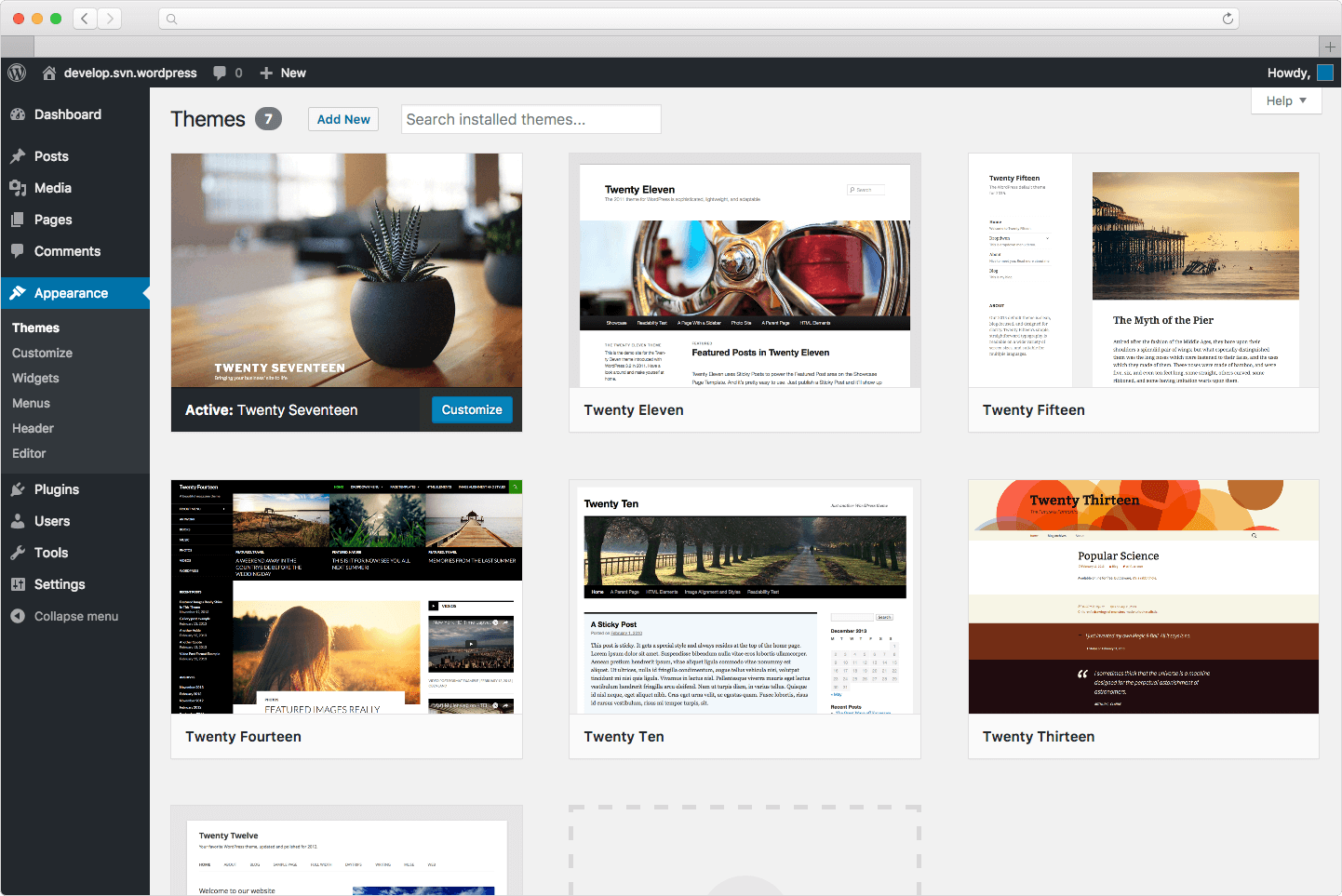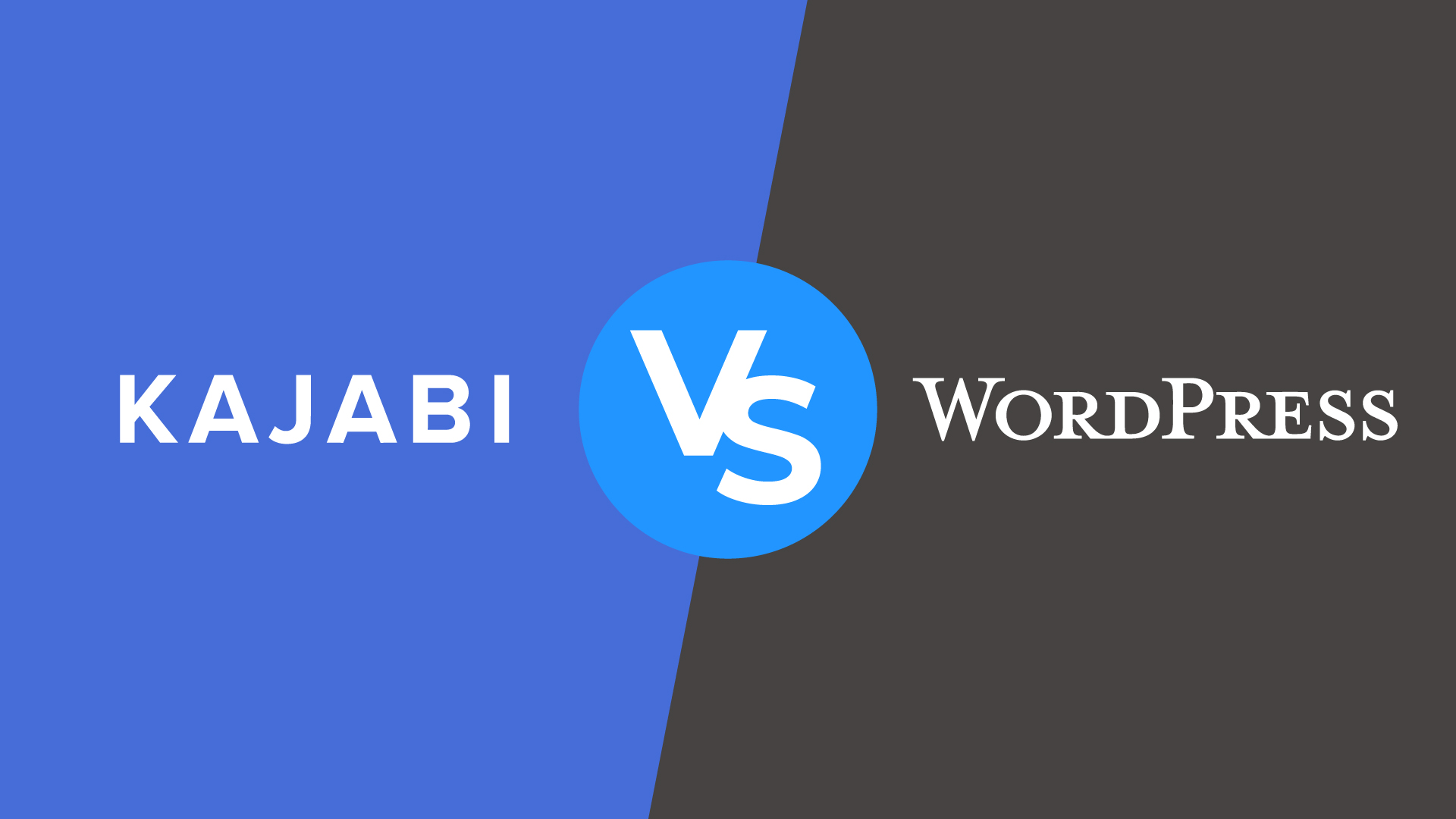Brad is the former editor who oversaw contributed content at ReadWrite.com. He previously worked as an editor at PayPal and Crunchbase.
See our Kajabi review: Kajabi: Features, Pricing, Alternatives
In today’s digital landscape, choosing the right platform for building and managing your online presence is crucial for success. Two popular options that often come up in discussions are Kajabi and WordPress.
Featured Partner
Learn More
on Kajabi’s website
Free Version: 14-day Free Trial
Starting Price: $149 / monthly
Integrations: Zapier, Mailchimp, ClickFunnels, Google Analytics, Stripe, PayPal
While both platforms offer a range of features and tools to help you create and maintain your website, it’s important to understand their differences and capabilities to determine which one best suits your needs. In this article, we will delve deep into the Kajabi versus WordPress debate, comparing their features, pricing, ease of use, and more, ultimately guiding you in making an informed decision for your online endeavors.
So, whether you’re an entrepreneur, blogger, or business owner, join us as we explore the ins and outs of these two powerful and versatile platforms.
Kajabi is an all-in-one online platform that allows entrepreneurs and businesses to create, market, and sell courses, digital products, and memberships.
By providing various tools for website building, marketing automation, and analytics, Kajabi streamlines the process of building and maintaining an online business. Users can easily customize the platform to suit their individual needs without any coding experience.
WordPress is an open-source content management system (CMS) used for creating websites and blogs. It is known for its user-friendly interface, allowing even non-technical individuals to build and manage their websites.
With numerous themes and plugins available, WordPress enables customization and added functionality to fit various needs.
Kajabi and WordPress are both popular platforms with various use-cases, catering to the needs of businesses and individuals alike.
Here are some example use-cases for both platforms:
1. Online Course Creation: Kajabi is an all-in-one platform for creating, marketing, and selling online courses. It offers tools for course creators to design and structure their content, create quizzes, and offer certifications. Instructors can use Kajabi to sell individual courses or bundle them together for a comprehensive learning experience.
2. Membership Sites: Kajabi allows users to create membership sites, allowing them to offer exclusive content and resources to their subscribers. This helps in building a community of loyal followers and generating recurring revenue.
3. Digital Products: Kajabi is suitable for entrepreneurs looking to sell digital products like e-books, webinars, or templates. The platform provides an integrated shopping cart and payment processing system, making it easy to handle transactions and deliver the digital products to customers.
4. Coaching and Consulting: Professionals like life coaches, business consultants, and fitness trainers can leverage Kajabi to host live events, workshops, and group coaching sessions, all while keeping track of attendees and interactions.
5. Email Marketing: Kajabi comes with built-in email marketing tools, enabling users to launch campaigns, create email sequences, segment their audience, and track email performance.
1. Blogging: WordPress initially started as a blogging platform and remains a popular choice for setting up personal and professional blogs. It offers an extensive range of themes, plugins, and customization options to create unique and engaging content.
2. Corporate Websites: WordPress is widely used by small to large enterprises to create their official websites, showcasing their products, services, and company information. The platform provides a library of themes and plugins that cater to various industries and niches.
3. Online Stores: With the help of plugins like WooCommerce, WordPress can be transformed into a fully functional e-commerce platform. Users can create product catalogs, manage inventory, handle payments, and process shipments.
4. Portfolio Websites: Freelancers, artists, and creative professionals can use WordPress to create beautiful portfolio websites to showcase their work and attract new clients or customers.
5. Forums and Community Websites: WordPress allows users to create forums, Q&A sites, and online communities with the help of plugins like bbPress and BuddyPress. These platforms can help in knowledge-sharing and fostering a strong sense of community among the users.
6. Event Management: By leveraging event management plugins, WordPress can be used to create, promote, and manage events. Users can sell event tickets, create event calendars, and set up registration forms.
In summary, while Kajabi is focused primarily on online courses and membership sites, WordPress is a versatile platform that can cater to a broad range of website needs, from personal blogs to corporate sites and e-commerce stores.
Featured Partner
Learn More
on Kajabi’s website
Free Version: 14-day Free Trial
Starting Price: $149 / monthly
Integrations: Zapier, Mailchimp, ClickFunnels, Google Analytics, Stripe, PayPal
Kajabi is an all-in-one platform designed to assist businesses, marketers, course creators, and influencers in streamlining their online presence through creating and selling online courses, coaching programs, and digital products. Kajabi’s integrative system offers a wide range of features that make it easy for users to build their websites, create marketing campaigns, and sell content to target audiences.
1. Website Builder: Kajabi provides a customizable and easy-to-use website builder, allowing users to create a professional-looking and responsive website with no coding knowledge required. This includes pre-built themes, templates, and drag-and-drop functionality to design pages that match the specific brand style.
2. Course Creation: Kajabi offers extensive tools and resources to create, manage, and sell online courses. Users can create comprehensive and engaging courses with options for various content formats, including video, text, images, quizzes, and downloadable resources. The platform makes it simple for creators to upload and organize their course content through a centralized dashboard while providing a seamless experience for learners.
3. Marketing and Sales: Kajabi offers a wide range of marketing features to promote digital products and boost sales. This includes built-in email marketing tools, effective landing pages, and sales funnels to generate leads. Additionally, the platform integrates with popular marketing services, such as Google Analytics and Facebook Pixels, to analyze performance and optimize campaigns.
4. E-commerce: Kajabi’s e-commerce capabilities enable creators to sell their digital products with ease. Users can set custom pricing, create different product packages, and integrate with payment processing services (Stripe and PayPal). The platform also offers features for creating upsells, downsells, and one-time offers to maximize revenue.
5. Membership Management: With Kajabi, users can create and manage membership sites for exclusive content access. This includes options for different membership levels, subscription plans, and access to specific courses, allowing creators to build a recurring revenue stream and nurture their community.
WordPress, on the other hand, is an open-source content management system (CMS) widely used to create websites, blogs, and digital applications. It offers flexibility, extended functionality, and a massive library of themes and plugins, making it one of the most popular and versatile platforms for website creation.
1. Customizable Themes: WordPress offers a vast array of themes, both free and premium, that cater to various website styles and genres. These themes come with customizable layouts, color schemes, and typography, allowing users to create a visually appealing website that aligns with their brand identity.
2. Plugins: WordPress features a large library of plugins designed to extend the core functionalities of the platform. These plugins facilitate additional features such as e-commerce tools, SEO optimization, social media integration, and more. This helps users to create a tailored website with added functionality, without the need for coding expertise.
3. Wide-ranging Compatibility: WordPress is compatible with various hosting providers, which allows website owners to choose a hosting service that meets their requirements and budget. WordPress also supports integrations with numerous services and tools such as MailChimp, Google Analytics, and Yoast SEO, enhancing the functionality of WordPress-based websites.
4. User Management and Multi-user Access: WordPress allows for multiple user roles and permissions, which makes it easy to manage and organize a team’s access to the website’s backend. Users can be assigned different roles such as administrator, editor, author, and contributor, ensuring streamlined workflow and content management.
5. SEO-friendly: WordPress is renowned for its SEO-friendly features that enable website creators to optimize their content for search engines. This includes features like creating clean permalinks, modifying meta titles and descriptions, optimizing images, and integrating with advanced SEO plugins, which significantly enhance a website’s chances of ranking higher in search engine results.
By understanding the key features of both Kajabi and WordPress, users can determine which platform best suits their specific needs and objectives in terms of creating, managing, and promoting their online presence.
Featured Partner
Learn More
on Kajabi’s website
Free Version: 14-day Free Trial
Starting Price: $149 / monthly
Integrations: Zapier, Mailchimp, ClickFunnels, Google Analytics, Stripe, PayPal
1. All-in-one platform:
2. User-friendly:
3. Marketing tools:
4. Integration:
5. Customer support:
1. Pricing:
2. Limited free trial:
3. Content management:
4. Lack of third-party plugins:
1. Open-source and flexible:
2. Extensive library of themes & plugins:
3. Large community:
4. SEO-friendly:
5. Affordability:
1. Requires technical knowledge:
2. Security vulnerabilities:
3. Time-consuming and complex:
4. Limited support:
5. Need for regular updates:
Featured Partner
Learn More
on Kajabi’s website
Free Version: 14-day Free Trial
Starting Price: $149 / monthly
Integrations: Zapier, Mailchimp, ClickFunnels, Google Analytics, Stripe, PayPal
After completing the steps above, your Kajabi site will be ready to launch. Share the link to your site with your audience, promote your courses, and watch your online business grow!
Featured Partner
Learn More
on Kajabi’s website
Free Version: 14-day Free Trial
Starting Price: $149 / monthly
Integrations: Zapier, Mailchimp, ClickFunnels, Google Analytics, Stripe, PayPal
Setting up WordPress involves a few steps, starting with purchasing a domain, obtaining web hosting, and then installing and configuring WordPress itself. The steps below will guide you through the process.
After completing these steps, your WordPress website is ready to go. Explore the vast array of features and settings within WordPress to further tailor your site to your specific needs, preferences, and goals. Remember to regularly update your site and its plugins, and perform backups to ensure security and stability.
Featured Partner
Learn More
on Kajabi’s website
Free Version: 14-day Free Trial
Starting Price: $149 / monthly
Integrations: Zapier, Mailchimp, ClickFunnels, Google Analytics, Stripe, PayPal
Kajabi and WordPress are both popular platforms for building and managing websites, but they cater to different needs and target audiences.
Kajabi is an all-in-one solution specifically designed for online courses, membership sites, and digital products creation. It offers a range of built-in features tailored to meet the needs of online entrepreneurs and content creators, including course creation tools, membership site management, inbuilt payment processing, and email marketing.
On the other hand, WordPress is a powerful content management system (CMS) that powers nearly one-third of all websites and offers unmatched flexibility and scalability. Suitable for any type of website, WordPress provides its users a plethora of plugins and themes to customize and extend their site’s functionality.
Kajabi simplifies the process of designing, hosting, and selling digital products with its user-friendly interface and integration of multiple functions under one roof. It excels in providing features for content hosting, marketing automations, pipelines, and landing page templates.
Furthermore, Kajabi possesses superior user-experience management tools, enabling creators to understand their audience and improve engagement and retention rates.
WordPress, however, relies on third-party plugins to incorporate e-commerce capabilities, learning management systems, and email marketing. While this offers greater customization options, it may require more maintenance and supervision, as the integration of various plugins might not be seamless and may necessitate technical know-how.
When it comes to pricing, Kajabi follows a monthly subscription model with three tiers offering varying levels of access to its features and functionalities. Although one might consider it relatively costly, the comprehensive solutions it provides may offset the price and prove cost-effective in the long run. WordPress, on the other hand, is an open source platform that is free to use for the basic CMS.
However, users need to pay for hosting, domain names, and possible premium plugins and themes to enhance their site’s functionality.
Ultimately, making a choice between Kajabi and WordPress largely depends on the individual’s requirements, technical expertise, and available resources.
Featured Partner
Learn More
on Kajabi’s website
Free Version: 14-day Free Trial
Starting Price: $149 / monthly
Integrations: Zapier, Mailchimp, ClickFunnels, Google Analytics, Stripe, PayPal
Kajabi and WordPress are two different platforms serving different purposes, so a direct comparison of pricing might not be accurate. However, I’ll provide a brief overview of the pricing for both platforms:
WordPress is a free, open-source content management system (CMS) used to create websites and blogs. However, the costs associated with WordPress come from the additional elements needed to create a functional website:
In summary, Kajabi offers an all-inclusive pricing structure with features specifically for online course and membership site creators, while WordPress is a highly customizable platform with varied costs based on the additional services and tools you integrate to achieve your goals.
Featured Partner
Learn More
on Kajabi’s website
Free Version: 14-day Free Trial
Starting Price: $149 / monthly
Integrations: Zapier, Mailchimp, ClickFunnels, Google Analytics, Stripe, PayPal
A: Kajabi is an all-in-one online platform designed specifically for selling and marketing digital products, online courses, and memberships. WordPress, on the other hand, is an open-source content management system that can be used for a wide range of website types, from blogs to e-commerce sites.
A: Yes, it is possible to integrate Kajabi with your WordPress site through various plugins and tools. This combination allows you to leverage the best features of both platforms, such as Kajabi’s robust e-commerce and marketing tools with WordPress’s flexibility and vast plugin ecosystem.
A: Kajabi is often considered more user-friendly because it involves a simple drag-and-drop interface with ready-to-use templates specifically designed for online course and product sales. WordPress can have a steeper learning curve, especially for users who are not familiar with web development or design.
A: Kajabi provides dedicated customer support through email, live chat, and phone, as well as a comprehensive knowledge base. WordPress, being open-source, relies mostly on community support via forums, but premium support is available if you purchase themes or plugins from specific developers.
A: Kajabi offers three pricing tiers, starting at $149/month, which includes most of the features needed for online sales and marketing. WordPress itself is free but requires additional costs for web hosting, domain, and premium themes or plugins. The cost of a WordPress site can vary greatly depending on your requirements and chosen add-ons.
A: WordPress is known for its extensive customization options, thanks to countless themes and plugins available. Kajabi also offers customization, but its options are more limited compared to WordPress, focusing mainly on e-commerce and online course features.
A: Kajabi manages security on its platform and includes SSL certificates, secure hosting, and constant monitoring. For WordPress, security is the responsibility of the website owner. You need to ensure regular updates, use reputable plugins, and follow security best practices to keep your site secure.
A: WordPress is widely praised for its SEO capabilities, with numerous plugins available for optimization, like Yoast SEO. Kajabi also offers built-in SEO features, but its primary focus is online sales rather than content creation and optimization.
A: Migrating content between Kajabi and WordPress may require manual work or the use of paid plugins, as there is no official migration tool offered by either platform. You may also need to reformat your content to ensure it displays correctly on the new platform.
Featured Partner
Learn More
on Kajabi’s website
Free Version: 14-day Free Trial
Starting Price: $149 / monthly
Integrations: Zapier, Mailchimp, ClickFunnels, Google Analytics, Stripe, PayPal
In conclusion, Kajabi and WordPress are two powerful platforms, each with their own unique sets of features and benefits for individuals and businesses seeking to establish a robust online presence. While Kajabi excels in its ability to deliver a seamless end-to-end experience for creating and managing online courses and memberships, WordPress offers unmatched flexibility and customization options for a wide variety of website types.
Ultimately, the choice between Kajabi and WordPress largely depends on your specific needs and goals. If your primary focus lies in creating and selling online courses or memberships with minimal hassle, Kajabi emerges as an excellent choice. However, if you prioritize flexibility, versatility, and long-term scalability for your website, WordPress is undoubtedly the more suitable option.
As you ponder the decision, it’s crucial to carefully consider your requirements, budget, and skillset to make an informed choice.
Taking the time to explore and understand both platforms’ distinct capabilities will enable you to harness their full potential and set the stage for your online success ─ be it in the realm of education or any other digital space.
Discover more Kajabi comparisons:
The ReadWrite Editorial policy involves closely monitoring the tech industry for major developments, new product launches, AI breakthroughs, video game releases and other newsworthy events. Editors assign relevant stories to staff writers or freelance contributors with expertise in each particular topic area. Before publication, articles go through a rigorous round of editing for accuracy, clarity, and to ensure adherence to ReadWrite’s style guidelines.
Brad is the former editor who oversaw contributed content at ReadWrite.com. He previously worked as an editor at PayPal and Crunchbase.
Few words will put a catch in the throat of a Gen Xer like “Atari.” No matter how badly that brand has been botched since Warner Bros. bought out founder…
By signing up, you agree to our Terms and Privacy Policy. Unsubscribe anytime.
Explore the latest in tech with our Tech News. We cut through the noise for concise, relevant updates, keeping you informed about the rapidly evolving tech landscape with curated content that separates signal from noise.
Explore tech impact in In-Depth Stories. Narrative data journalism offers comprehensive analyses, revealing stories behind data. Understand industry trends for a deeper perspective on tech’s intricate relationships with society.
Empower decisions with Expert Reviews, merging industry expertise and insightful analysis. Delve into tech intricacies, get the best deals, and stay ahead with our trustworthy guide to navigating the ever-changing tech market.
REGULATION & HIGH RISK INVESTMENT WARNING: Trading Forex, CFDs and Cryptocurrencies is highly speculative, carries a level of risk and may not be suitable for all investors. You may lose some or all of your invested capital, therefore you should not speculate with capital that you cannot afford to lose. The content on this site should not be considered investment advice. Investing is speculative. When investing your capital is at risk. Please note that we do receive advertising fees for directing users to open an account with the brokers/advertisers and/or for driving traffic to the advertiser website
© ReadWrite. All Rights Reserved.







